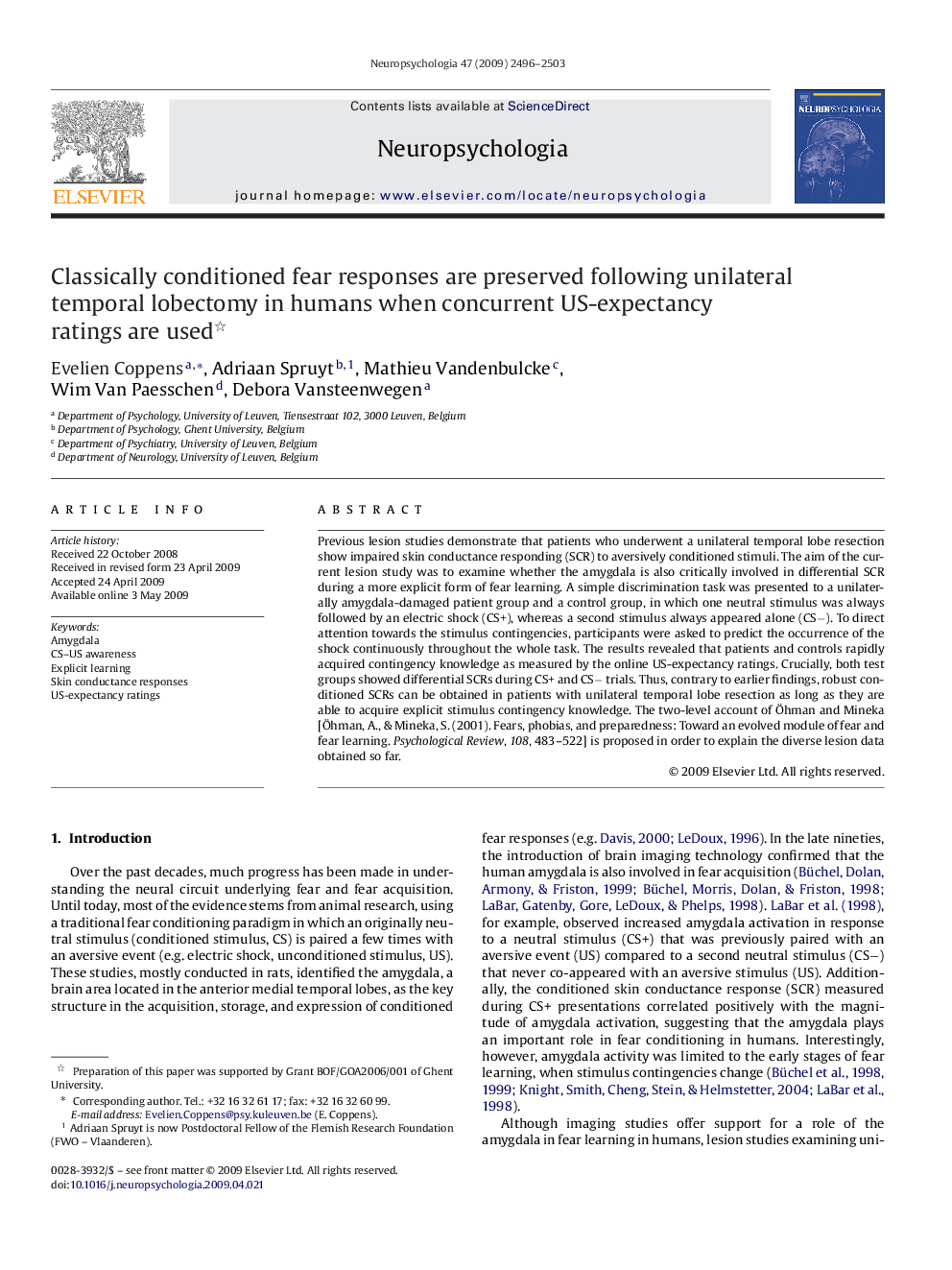| کد مقاله | کد نشریه | سال انتشار | مقاله انگلیسی | نسخه تمام متن |
|---|---|---|---|---|
| 945073 | 925754 | 2009 | 8 صفحه PDF | دانلود رایگان |

Previous lesion studies demonstrate that patients who underwent a unilateral temporal lobe resection show impaired skin conductance responding (SCR) to aversively conditioned stimuli. The aim of the current lesion study was to examine whether the amygdala is also critically involved in differential SCR during a more explicit form of fear learning. A simple discrimination task was presented to a unilaterally amygdala-damaged patient group and a control group, in which one neutral stimulus was always followed by an electric shock (CS+), whereas a second stimulus always appeared alone (CS−). To direct attention towards the stimulus contingencies, participants were asked to predict the occurrence of the shock continuously throughout the whole task. The results revealed that patients and controls rapidly acquired contingency knowledge as measured by the online US-expectancy ratings. Crucially, both test groups showed differential SCRs during CS+ and CS− trials. Thus, contrary to earlier findings, robust conditioned SCRs can be obtained in patients with unilateral temporal lobe resection as long as they are able to acquire explicit stimulus contingency knowledge. The two-level account of Öhman and Mineka [Öhman, A., & Mineka, S. (2001). Fears, phobias, and preparedness: Toward an evolved module of fear and fear learning. Psychological Review, 108, 483–522] is proposed in order to explain the diverse lesion data obtained so far.
Journal: Neuropsychologia - Volume 47, Issue 12, October 2009, Pages 2496–2503